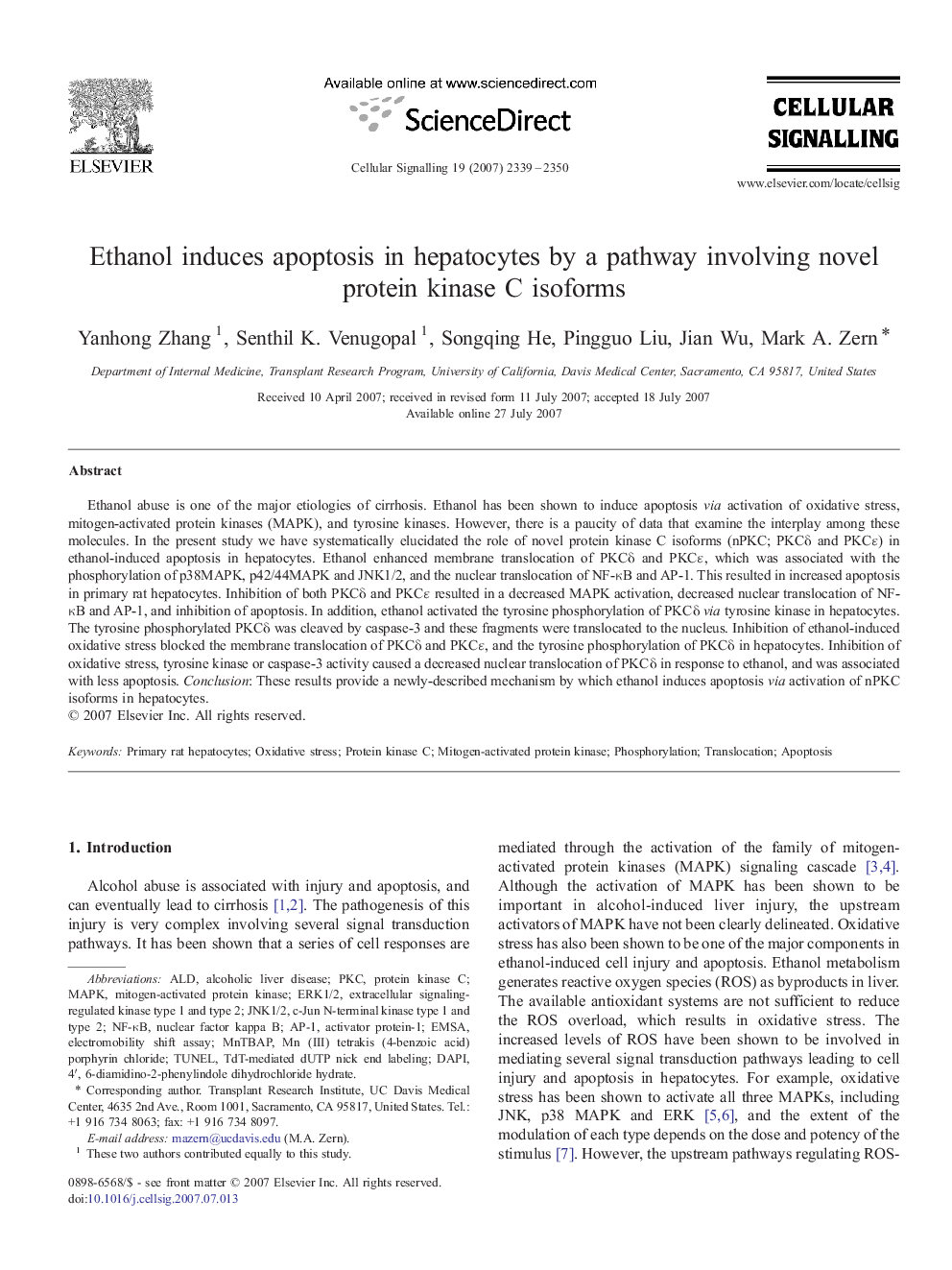| Article ID | Journal | Published Year | Pages | File Type |
|---|---|---|---|---|
| 1964300 | Cellular Signalling | 2007 | 12 Pages |
Abstract
Ethanol abuse is one of the major etiologies of cirrhosis. Ethanol has been shown to induce apoptosis via activation of oxidative stress, mitogen-activated protein kinases (MAPK), and tyrosine kinases. However, there is a paucity of data that examine the interplay among these molecules. In the present study we have systematically elucidated the role of novel protein kinase C isoforms (nPKC; PKCδ and PKCÉ) in ethanol-induced apoptosis in hepatocytes. Ethanol enhanced membrane translocation of PKCδ and PKCÉ, which was associated with the phosphorylation of p38MAPK, p42/44MAPK and JNK1/2, and the nuclear translocation of NF-κB and AP-1. This resulted in increased apoptosis in primary rat hepatocytes. Inhibition of both PKCδ and PKCÉ resulted in a decreased MAPK activation, decreased nuclear translocation of NF-κB and AP-1, and inhibition of apoptosis. In addition, ethanol activated the tyrosine phosphorylation of PKCδ via tyrosine kinase in hepatocytes. The tyrosine phosphorylated PKCδ was cleaved by caspase-3 and these fragments were translocated to the nucleus. Inhibition of ethanol-induced oxidative stress blocked the membrane translocation of PKCδ and PKCÉ, and the tyrosine phosphorylation of PKCδ in hepatocytes. Inhibition of oxidative stress, tyrosine kinase or caspase-3 activity caused a decreased nuclear translocation of PKCδ in response to ethanol, and was associated with less apoptosis. Conclusion: These results provide a newly-described mechanism by which ethanol induces apoptosis via activation of nPKC isoforms in hepatocytes.
Keywords
NF-κBDAPIAP-1MnTBAPPKCERK1/2JNK1/2MAPKALDelectromobility shift assayTranslocationalcoholic liver diseaseTdT-mediated dUTP nick end labelingOxidative stressTUNELApoptosisEMSA یا electrophoretic mobility shift assay nuclear factor kappa BPhosphorylationPrimary rat hepatocytesactivator protein-1Protein kinase Cmitogen-activated protein kinase
Related Topics
Life Sciences
Biochemistry, Genetics and Molecular Biology
Biochemistry
Authors
Yanhong Zhang, Senthil K. Venugopal, Songqing He, Pingguo Liu, Jian Wu, Mark A. Zern,
